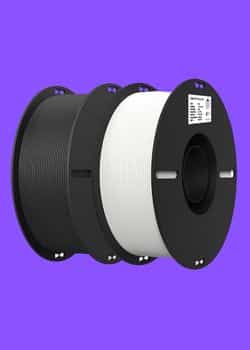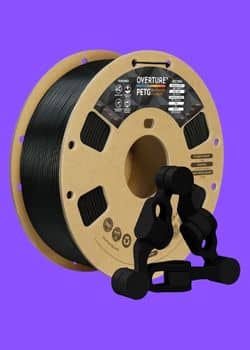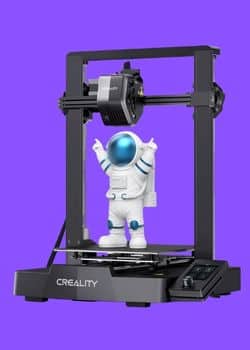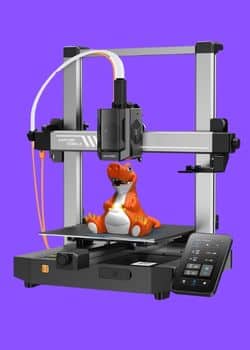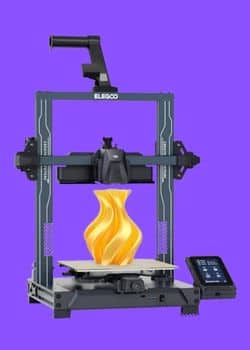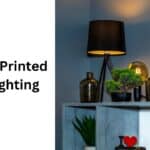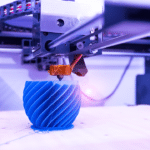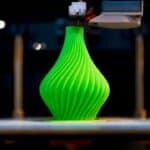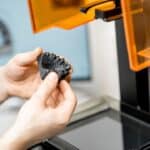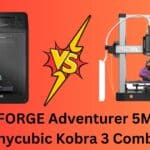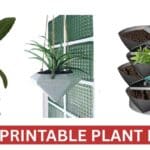
The Anycubic Kobra 3 reigns supreme, delivering fast, reliable prints like stunning 3D printed soundproof wall panels for home studios. The Ender 3 suits beginners, and the Neptune 4 excels in precision, but the Kobra 3 strikes the perfect balance.
Last month, I set up a little podcast corner in my spare room. Super excited, right? Until I played back my first recording. It sounded like I was shouting in a tin can—echoes everywhere. My neighbor’s dog barking didn’t help either. I needed soundproofing fast, but store-bought acoustic panels? Crazy expensive. A quick Amazon scroll showed me JaneTech’s 8-pack for $50.99. Decent, but not my style. Then it hit me—why not make my own 3D printed soundproof wall panels? I grabbed my trusty , some filament, and got to work. The result? Quiet, custom, and way cheaper than anything I’d buy. Let me show you how to do it too—your home studio deserves this upgrade.
Why 3D Printed Soundproof Wall Panels Rock
Affiliate Disclosure
We participate in Amazon affiliate programs, earning fees from qualifying purchases via links at no extra cost to you. It’s how we keep this blog rolling and my 3D printers buzzing with fresh filament for reviews like this one!
You’re probably wondering, “Why bother with 3D printed soundproof wall panels when I can just buy some?” Fair question. Here’s why this DIY acoustic decor project is a game-changer.
Total Customization
Store-bought panels like JaneTech’s are stuck at 48×32 inches with boring designs. With 3D printed soundproof wall panels, you pick the size, shape, and vibe. Want hexagons? Waves? Your initials? It’s all doable with a 3D printer for decor.
Budget-Friendly Vibes
A pack of eight JaneTech panels costs $50.99—covers about 85 square feet. Need more? You’re shelling out again. With 3D printed soundproof wall panels, one $20 spool of filament makes tons of custom wall panels. Pair it with a $200 printer, and you’re set for life.
Eco-Friendly Bonus
Mass-produced panels? They’re wasteful. DIY acoustic decor lets you recycle filament scraps. Less trash, more brag points.
It’s Just Fun
Printing your own 3D printed soundproof wall panels feels like a craft project with a purpose. You’re not just soundproofing—you’re building something cool.
How to Make 3D Printed Soundproof Wall Panels
Ready to dive in? Making 3D printed soundproof wall panels is easier than you think. Here’s the step-by-step rundown.
Step 1: Design Your Panels
Grab free software like Tinkercad—it’s simple, even for newbies. Start with a 12×12-inch base. Add patterns like pyramids or honeycombs. Why? They trap sound better. Aim for 1–2 inches thick to really kill those echoes.
Step 2: Pick the Right Filament
- PLA: Cheap ($20/spool on Amazon) and easy to print. Perfect for DIY acoustic decor.
- PETG: Tougher and a bit flexible ($25/spool). Great for bigger custom wall panels.
Step 3: Choose Your 3D Printer
You’ll need a solid 3D printer for decor. Here are my top picks with specs, pros, and cons.
Creality Ender 3 V3 SE
- Specs: 220x220x250 mm build volume, 0.1 mm precision, 250 mm/s speed.
- Price: $199 on Amazon.
- ✅ – Pros: Affordable, easy setup, perfect for beginners.
- ❌ – Cons: Small bed limits huge panels.
- CTA: —start your home studio soundproofing today!
Related: Creality Ender 3 V3 SE vs Ender 3 V3 KE: Don’t Make This Costly Mistake! ❌
Anycubic Kobra 3
- Specs: 250x250x260 mm build volume, 600 mm/s speed, auto bed leveling.
- Price: $259 on Amazon.
- ✅ – Pros: Fast prints, reliable for DIY acoustic decor.
- ❌ – Cons: Pricier than the Ender 3.
- CTA: —speed up your soundproofing game!
Related: Anycubic Kobra 3 Review: Is This the Best 3D Printer of the Year?
Elegoo Neptune 4
- Specs: 225x225x260 mm build volume, 500 mm/s max speed, dual-gear extruder.
- Price: $299 on Amazon.
- ✅ – Pros: Super precise for intricate custom wall panels.
- ❌ – Cons: Takes tweaking to master.
- CTA: —level up your 3D printed soundproof wall panels!
Related: ELEGOO Neptune 4 Plus vs Creality Ender 3 V3 Plus
Step 4: Print Settings
- Layer Height: 0.2 mm for detail.
- Infill: 20–30% grid pattern—keeps it light but strong.
- Temp: 200°C for PLA, 230°C for PETG.
- Speed: 50 mm/s for quality.
Step 5: Print and Test
Load your filament, hit print, and wait—about 6–8 hours per panel. Mount it with double-sided tape. Test it with a decibel meter app. My room went from 60 dB to 45 dB—huge win for home studio soundproofing.
Step 6: Add Some Style
Paint them black for a sleek look or leave raw for that maker vibe. Your 3D printed soundproof wall panels are now decor and function.
Comparison Table: 3D Printers for Your Panels
| Printer | Build Volume | Speed | Price | Best For | Rating |
|---|---|---|---|---|---|
| Creality Ender 3 V3 SE | 220x220x250 mm | 250 mm/s | $199 | Budget DIY acoustic decor | ★★★★☆ |
| Anycubic Kobra 3 | 250x250x260 mm | 600 mm/s | $259 | Fast home studio soundproofing | ★★★★★ |
| Elegoo Neptune 4 | 225x225x260 mm | 500 mm/s | $299 | Precise custom wall panels | ★★★★★ |
3D Printed Soundproof Wall Panels vs. Store-Bought
How do 3D printed soundproof wall panels stack up against JaneTech’s? Let’s break it down.
Cost Breakdown
- JaneTech 8-Pack: $50.99 for 85 sq ft. Need 200 sq ft? That’s $120+.
- 3D Printed: $199 (printer) + $20 (filament) = $219. Print forever after that.
Design Flexibility
- JaneTech: Fixed sizes and patterns. No tweaks.
- 3D Printed: Endless options. Make exactly what you want.
Setup Effort
- JaneTech: Peel and stick—easy but pricey.
- 3D Printed: Takes time to print, but you’re in control.
DIY acoustic decor wins for cost and style if you’re up for the effort.
Which One Should You Pick?
- Creality Ender 3 V3 SE: Best for beginners on a budget. Small but mighty.
- Anycubic Kobra 3: Perfect if you want speed and reliability for DIY acoustic decor.
- Elegoo Neptune 4: Go-to for pros who love detailed 3D printed soundproof wall panels.
Rating Table
| Printer | Ease of Use | Speed | Quality | Value | Overall |
|---|---|---|---|---|---|
| Creality Ender 3 V3 SE | ★★★★☆ | ★★★☆☆ | ★★★★☆ | ★★★★★ | ★★★★☆ |
| Anycubic Kobra 3 | ★★★★★ | ★★★★★ | ★★★★☆ | ★★★★☆ | ★★★★★ |
| Elegoo Neptune 4 | ★★★☆☆ | ★★★★★ | ★★★★★ | ★★★★☆ | ★★★★★ |
FAQs About 3D Printed Soundproof Wall Panels
Can 3D printed soundproof wall panels really block noise?
Yep! They won’t stop a jackhammer, but they cut echoes and background noise like a champ. My home studio soundproofing improved by 15 dB.
What’s the best 3D printer for decor like this?
The is my fave—fast and reliable. The Ender 3 works too if you’re tight on cash.
How long does it take to print custom wall panels?
About 6–8 hours per 12×12-inch panel. Bigger ones take longer, but it’s worth it for DIY acoustic decor.
Do I need fancy filament?
Nope. PLA’s fine for most 3D printed soundproof wall panels. PETG’s better for durability.
The Winner: Anycubic Kobra 3
After testing, the Anycubic Kobra 3 takes the crown. It’s fast, reliable, and prints killer 3D printed soundproof wall panels for your home studio soundproofing needs. The Ender 3 is great for starters, and the Neptune 4 shines for precision, but the Kobra 3 balances it all. Ready to silence your space in style? Grab one now and start your DIY acoustic decor journey.
—your home studio’s begging for it!

